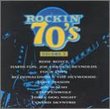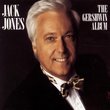| All Artists: Bobby Watson Title: Post Motown Bop Members Wishing: 1 Total Copies: 0 Label: Capitol Original Release Date: 1/1/1991 Re-Release Date: 1/15/1991 Genre: Jazz Styles: Modern Postbebop, Bebop Number of Discs: 1 SwapaCD Credits: 1 UPCs: 077779514847, 077779514823 |
Search - Bobby Watson :: Post Motown Bop
CD DetailsSimilar CDsSimilarly Requested CDs
|
CD ReviewsPost-modern progression T. Charles | Middle East | 04/22/2009 (5 out of 5 stars) "`Post-Motown Bebop'
Alto saxophone has always been a more challenging horn than tenor in terms of producing an elegant, driving, swinging tone and the challenge for alto saxophonists since Charlie Parker has been to develop a more rounded sound distinct from his birdlike squalls. Of contemporary alto saxophonists; Phil Woods, Kenny Garrett, Donald Harrison, Bobby Watson has the most lucid, rounded and the sweetest tone of them all. Arguably, he swings harder and soars higher than anyone in contemporary jazz and when on form, his soloing is uninhibited in its lyricism, a thrilling expression of jazz's core values. The album's key values are reflected in the spirited exchanges beween Watson's alto and Mustafa's trumpet. `Post-Motown Bebop' features a slimmed down unit from his previous Blue Note album, `The Inventor', and Horizon has grown in to a tighter unit. `The Punjab of Java Po' is a lively, hard bop number in which Melton Mustafa's trumpet and Watson exchange statements before Edward Simon's piano drives the piece to its conclusion. `Big Girls' features Watson on soprano (a horn he was starting to feature more at this stage of his career) is an introspective, wistful number written by drummer Victor Lewis, which builds through phrases exchanged between Watson and Mustafa. Rogers & Hart's `Falling in Love with Love' is taken at a skipping pace, before Carroll Dashiell's walking solo bass statement. Watson evokes `Perdido' in his economic solo. Victor Lewis' standard `7th Avenue', has lively, modal feel. Watson and Mustafa state the theme, punctuated by Edward Simon's busy piano. Mustafa takes the first solo, supported by Victor Lewis' polyrhythmic drums. Watson's soprano takes the reins for a precise solo, but lacking the eloquence he has on alto. `Appointment in Milano' is a remake of Watson's tune. Carroll Dashiell's skipping bass and Mustafa's breathy trumpet delicately introduce the piece before Watson takes off, getting under the skin of the composition, soaring and swooping, between octaves, full of joyous invention. Simon's 24 bar solo is a delight, before the theme is re-stated. This is the outstanding track of the CD. Watson's new version of his `In Case you Missed it' swings furiously and Watson hits the heights, with his impassioned solo. The horns urgently whisk through the opening and the leader offers a precise, solo, which is echoed by Simon's impressive piano. Watson and Mustafa play off each other to the conclusion. A great track. `In a Sentimental Mood', is a Hodges tribute, to one of his inspirations, yet Watson shows how his style has evolved independently of the master, revealing emotional depth, evoking Hodges' blues while making the song his own. Art Blakey is evoked in Simon's `Slippin' & Slidin' which has a low, minor key introduction, giving way to impassioned exchanges by the two horns. Victor Lewis' `Bah-da-da-da-dah-dah' is taken at breakneck pace. Simon takes the lead solo before the horns restate the theme. Watson's alto then dominates, playing with insistent, hurtling, high energy. `Last Chance to Groove', Mustafa's closing tune is a more relaxed 4/4, which could also have come from Blakey. His solo hits the mark but is eclipsed by Watson, It's hard to believe that this album was his last for Blue Note. His playing had reached new heights with Invention, which was an outstanding unit. And then the label dropped him-or was he offered more money by Columbia?-and his career never quite recovered. He doesn't enjoy the status an artist of his stature should, which suggests that had he been allowed more time to develop within the Blue Note stable, his talent would have evolved and he would have received due recognition for his undoubted talents. Blue Note has a reputation of meticulous care in their handling of musicians, which involved giving artists time to rehearse before they recorded. The results can be heard in their catalogue stretching back from the 50s to the current day. Why was Bobby Watson-an outstanding alto saxophonist-dropped from their roster just as his career was taking off? " |











